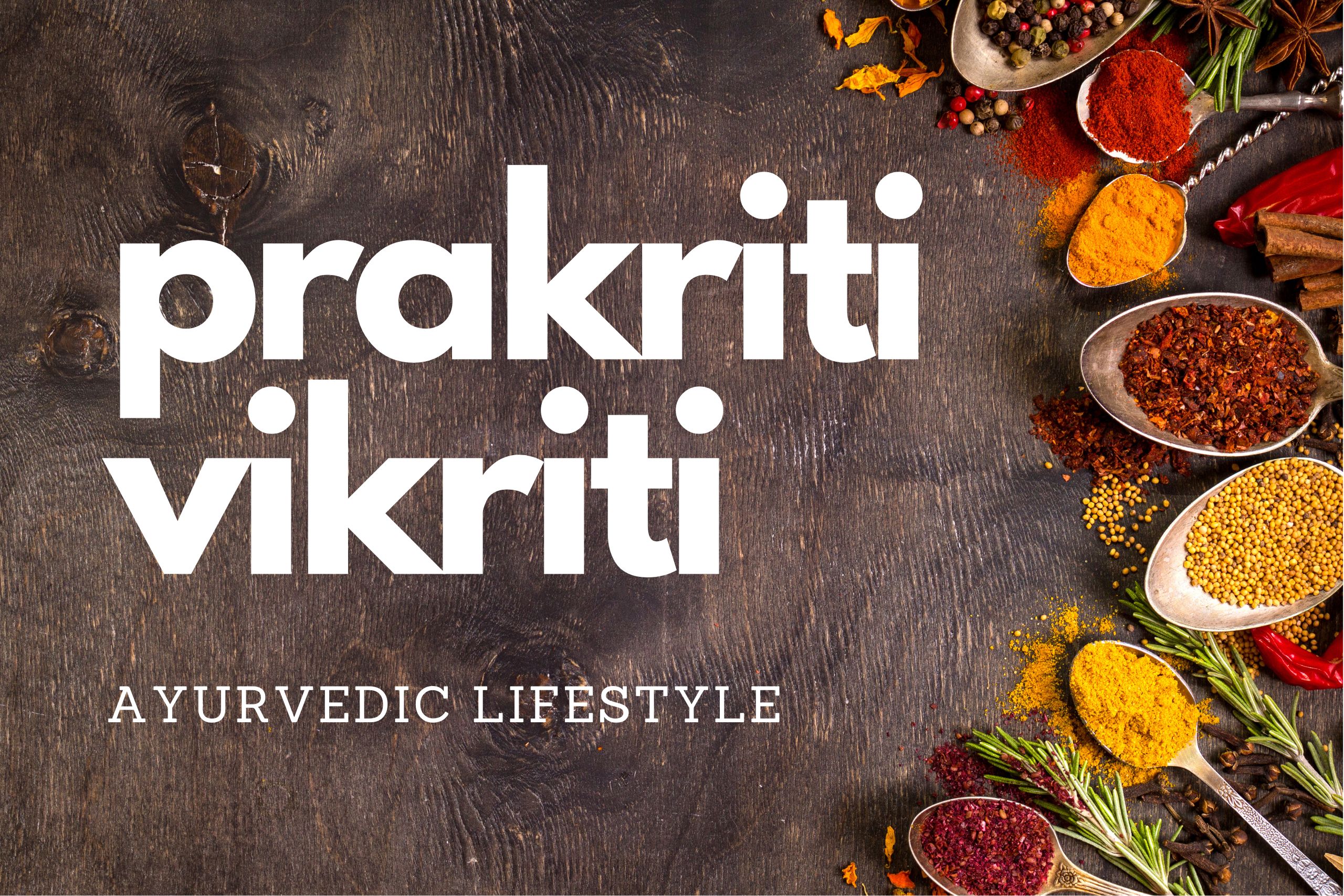Open the newspaper these days, and you will likely stumble upon an article ballyhooing the benefits of a newly discovered diet. Healthy Diet is a term with more interpretations today than there are leaves on the head of a lettuce. Everyone’s got a viewpoint, every viewpoint has got its research and all research is divergent. Yet we continue to stay skewed in one direction or the other, whether it is our food or our fads.
Swami Vivekananda had once said that the ultimate goal of humans isn’t to be healthy, it is only a means to an end. If health were the end, we could be like animals who in their natural environment rarely become unhealthy. They know what to eat, how much to eat and to never overeat. Yet despite an advanced genetic make-up we suffer from an unnecessary and inconsequential obsession about food.
Humans don’t live to eat, animals do. Food, sex and sleep are the primary life goals of animals that is why the ancients called them ‘Bhoga Yonis’. Since humans are born with the power of discretion and action we are the ‘Karma Yonis’. Our possibilities are far beyond these limits and only when we learn to overcome them can we start to be human.
If I could distill my studies and experience on the subject, I would summarize my findings about creating your own perfect diet in these ten personal commandments and I hope you will find them helpful.
#1 Root cause of health is not the food, but our mind.

The trouble with all diets is that they look at food as the root of all problems and food itself as the solution. But the real power to make us healthy or unhealthy is somewhere else.
While at the physical level digestion works on food, at the subtle level it is a reflection of how we process or digest our thoughts. More often mental digestion prevails over physical digestion. In Yoga for instance, constipation signifies a possessive nature impacting those who suppress their feelings or hold onto material goods. Similarly, obesity can result from low self-esteem or loneliness.
Dr. Svoboda recently explained Sneha (Sanskrit for Love) as ‘adhesiveness’. He mentioned that roughly it also translates to Fat, as there’s a chemical reaction when we ingest fat which makes us feel like we’re being loved. Fat literally envelopes our body in a warm comforting embrace. Hence if we do not have enough sincere affection in our life there’s a good chance that we will instead try to find that affection through fat.
We therefore first need to address the root cause(s) and master our mind. A controlled mind does not mean counting every calorie because then we are victims of neurosis. It is balanced, aware of our true needs, inherently seeks what’s healthy and rejects what’s not. Yoga practices work very effectively to build such harmony between body and mind by giving us control over our breath, which controls our mind, which controls our body. Simply, breathing correctly will have a greater impact on health than any trendy diet.
(To read more about how breath influences the mind, read my blog- Breath, the Master of our Minds)
#2 Food is more than nutrition, it is a source of the universal energy called Prana

While food provides nutrition, it’s also a derivative of the universal energy called Prana which pervades all levels of life. Prana is a derivative of that universal energy which keeps us and the universe alive. Prana is that which runs the fan, the car or the television, the same Prana also runs us. It is that electric, magnetic, cosmic energy principle which when combined with the element of space, caused the universe to come into existence. The very sound of creation Aum itself is called Pranava ~ that which has eternal existence.
Everyone is born with a certain amount of Prana which forms the basis of our constitution and personality. Just like physical energy it is used up when we act or think. If we’re healthy we will have great amounts of Pranic energy which reflects in general vitality, glowing skin, high immunity and overall stamina.
However, food isn’t the only source of Prana. The air we breathe generates the most potent form of this energy, thus there are Breatharians who survive only on air and why Pranayama practices are extremely powerful. It can be generated through solar energy, thus there are Sun Yogis. Interestingly, the cleanest energy even in our physical world comes from the sun and wind, the energy from burning fossil fuels is both polluting and inefficient. Fossil fuels become energy by the action of pressure, heat and time on the remains of long dead organisms. So does food.
Hence, by simply breathing correctly with judicious exposure to the Sun, we would be getting rid of unnecessary food cravings and generating large amounts of Prana, supplying our body with the clean energy it requires.
#3 Eat fresh, wholesome foods and stay away from processed items

No matter what we eat, the processed junk that comes in a packet is the very nadir of human food choices. A disheartening outcome of modern age is the popularity of packaged, ready to eat foods. Originally invented for the armed forces as were most of the modern pesticides (chemical warfare)m this new technology got the perfect break into the mainstream with the advent of feminism. As women broke tradition and took up jobs, most households struggled with the question of who would cook? The quick answer was found in packaged foods and ready meals. I perhaps wouldn’t be far out of line in saying that the majority of health-related issues we face today are because a generation of men refused to get into the kitchen and share responsibility!
Food should be eaten fresh – freshly cooked or freshly picked is the most ideal. However, with the modern constraints of time we regularly eat stale food that’s long ago lost its prana, we suffer our digestive system through denatured leftovers in the fridge, we consume excessive tea and coffee to fill up the gaps in our day and to keep pumping our system ignoring its demand for rest. We are only turning the process that should’ve created life-giving energy into one that produces lethal toxins.
At the same time eating too ‘pure’ in a world like ours will only be more detrimental than beneficial. Though counter intuitive it’s good to eat out or have street food on rare occasions so your body is well exposed to the germs out there and the library of your immune system is up-to-date. Eating purely raw foods or going on a fruitarian diet can create changes in your system like increasing your sensitivity to light and sound so much that life in a metro city may become unbearable. So, when defining the perfect diet while living a normal householder life, moderation is key, that is why advanced Yogis who followed extreme methods often lived in the jungles and ashrams away from city life.
As much as you can, cook food at home to minimize polluted food from entering your system. Eat it fresh, shop for fruits and vegetables regularly – it’s therapeutic, don’t buy for the week. And even if that’s not always possible, support local home chefs in your community, it’s a lot better than food from a factory.
#4 Always eat mindfully and with awareness

It’s important to eat with full commitment to the act of eating ~ no talking, television or movies as that makes us eat mindlessly. This awareness extends to being aware of our emotional state while eating ~ food should be consumed in a relaxed manner and never if we’re agitated or disturbed. Yet many of us eat under stress, mulling over assignments or presentations, having working lunches, inconsistent meal times or rushing through meals while walking or driving.
Even denying our cravings has consequences – once a craving for high energy (high sugar or fat) food has set in, the body in an anticipatory response starts preparing for activity and storing glucose, which when not utilized gets converted to fat. It not just food that can trigger insulin production, it is also our mind by simply thinking about food (American Journal of Clinical Nutrition, 1985). So, when someone says they gain weight by simply looking at a piece of dessert, they are probably right.
Awareness helps us reconnect with our body, become more open to the language of our organ systems and more mindful of what we put them through. It gives us the ability to not crave a decadent dessert in the first place!
#5 Food prepared with love is very powerful

A meal made with love and devotion by those who care for you has far greater Pranic energy and offers deeper satisfaction to mind, body and soul. Food prepared by a chef who loves his/her art and derives joy from serving will be more fulfilling than food prepared by disinterested staff or a commercial establishment concerned only with profits.
This is because thoughts are energy, what we feel and think is energy. Electrochemical reactions in our brain generate thought by using up energy from a glucose molecule. Energy does not get destroyed, it only gets transformed and thoughts once generated don’t disappear but get subsumed into our environment as positive or negative energies. That is why one feels low around a person who is sad and uplifted around one who is full of joy. That’s why the thoughts going on in your mind as you cook permeate your food. And why food from a holy temple is considered prasadam ~ the purest food for man’s spirit or why nothing is ever as good as ‘maa ke haath ka khaana’ (food cooked by one’s mother).
Therefore, the perfect diet or the most ideal kind of food that we can have is grown organically with devotion, harvested in season with a sense of joy, purchased and cooked with love and consumed when we’re relaxed, with a sense of gratitude. Perhaps the reason ancients had approached everything with prayer and a sense of piety was to infuse this positive pranic energy in all acts.
#6 Understand that food has spiritual implications

Food is also a critical factor in the human spiritual evolution- Good thoughts, actions and food result in good karma; bad result in bad karma. Non-attachment and neutrality results in no karma – the elusive ideal state.
We incur Karma every time we eat, the degree of which depends on the type of food. As per some ancient texts all creation is segregated into these five groups as per the number of elements that they are made out of: Plants, Insects/Aquatics, Birds, Animals, Humans. While all beings are alive, plants are the lowest form of life as they are made out of only one element (water) and humans are the highest form as they’re made out of all 5 elements (earth, water, fire, air, space).
Higher the number of elements in an organism, higher is the degree of Karma incurred in killing it. Consuming plants incurs lesser karma than killing insects or aquatic beings which are made of two elements (earth, fire). Killing insects or fish in turn will incur lesser karma than killing birds which are made of three elements (earth, air, fire) and so on.
Furthermore, food that we eat impacts not just our physical body but our subtle bodies as well. There are five koshas or sheaths (Physical, Pranic, Mental, Intuitive and Blissful) that humans have, the first of which is Annamaya Kosha or the physical body which is made out of food. As energy from food at a subtle level becomes prana it contributes to the second sheath which is Pranamaya Kosha. Through the vibrations of this prana thought is produced thus it contributes to the third sheath called Manomaya Kosha and so on. Therefore, we need to look at food as beyond taste and gratification to the bigger purpose it serves and the far-reaching impact it has on our entire personality.
There is hardly any species that can survive by eating non-living dead objects like bricks and mortar. Since everything we can eat for food is sentient, it is not normally possible to live in this world without taking away life. Hence, by eating from the least detrimental food group available on the planet we minimize our debt to nature, even though we do not make it zero. The lesser our account of karmas, the faster we progress in the spiritual journey because we also release our non-physical sheaths from excess baggage.
Not just eating, but even wasting food or produce has been severely looked down upon in ancient societies. Imagine the karmic debt we create for simply throwing away a few grains of rice when every grain contains life.
#7 Understand how food impacts your physical and mental states

Food is categorized as per the three gunas or qualities of nature which are Sattva, Rajas and Tamas. Everything in nature including all matter, every living being and every action is made up of these three gunas. These gunas indicate the type of food as well as the type of environment that food creates in our mind.
Sattvic foods create balance, they are fresh, in season and natural. Sattva represents light, knowledge, balance and purity. These foods include fruits, vegetables, nuts, milk, grains, legumes etc. One should mostly eat Sattvic foods as they are harmonizing. It improves our sense of discrimination of what’s right or wrong, making us better decision makers.
Rajasic foods are stimulating and if taken in excess can make us aggressive and irritable. It increases mental activity making us think or brood too much and even weakens our discrimination. That’s why they make us over confident, misleading us into doing more than our capacity, resulting in failure or injuries. These foods are hot in nature and include items that are oily, spicy, salty and caffeinated. Rajasic foods should be taken in moderation.
Tamasic foods create dullness, they represent the principle of inertia. These foods result in poor sense of discrimination and judgment. All stale foods are tamasic and even freshly cooked food becomes tamasic after couple of hours of preparation. These also include meat, alcohol, processed foods, onion, garlic etc. Tamasic foods are strictly discouraged for those on the spiritual path and even for those who aren’t, are best kept to a minimum.
We are naturally drawn towards the food which creates or aligns with our preferred / compulsive state of mind, whether it is fearlessness or devotion. As per Swami Vivekananda, Tamas is only found in brutes and idiots and no other idea comes to their mind but ones that cause damage. Rajas is for those whose motives are power and enjoyment, it is the quality of vileness or desire. Sattva on the other hand brings serenity, calmness, clarity and equilibrium. It is the preferred state for all humanity and a perfect diet should include mostly Sattvic Foods.
#8 Eat in moderation

Food should be eaten in moderation – neither too much, nor too little. Hatha Yoga Pradipika states that a third of the stomach should be left empty while eating and we should never stuff ourselves to full capacity. While it’s important to eat a wide variety of foods to gain all essential nutrients, the diversity of grains and food types in one meal should not be extraordinary.
Yet today we over indulge in food, there are enormous portions, unhealthy ingredients and too much variety. Food should be simple, not complicated. More we harass our taste buds more difficult they will become to please; leading us down the path of gradually increasing need for stimulation for a progressively reducing sense of satisfaction.
A perfect diet is moderate and moderation comes when we chew our food properly as it slows down the process of eating. Thus, we end up eating much lesser than we normally do. Eating fast on the other hand makes us eat a lot more and also makes us more sluggish as energy from the body goes into completing the process of chewing in the stomach, because we were too lazy to do it with our mouths!
Eating in moderation is further facilitated when we sit on the floor cross legged which is active sitting versus passive sitting when we use a chair. This keeps our body alert and also concentrates the digestive juices in the stomach area. The very nature of this pose will not let you over eat because it becomes very uncomfortable maintaining this ‘active’ position if our belly is getting strained with food. You will get up before you’re fed up.
Finally, in moderation, it’s a good idea to fast or ‘detox’ once in a week or month to give a break to our digestive system and helps the process of elimination. Again, don’t go to extremes – while fasting, don’t indulge in undue activity but make it a day of rest. Equally, don’t pursue excessive fasting as it might offer instant weight loss but can be permanently damaging.
#9 Use your senses to maximize digestion

The food we eat should literally feed all the five senses and to begin with, should be visually appealing. It should even smell delicious and sound good– whether the crunch of apples or aroma from spices, it all contributes in the process of digestion.
Healthy fruits and vegetables have vibrant color, spotless skin and if they’re fresh will still be firm. Though in today’s age it might just be a sign of abundant fertilizer and pesticide usage. So we all need to make our conscious, aware choices without getting too wrapped up in nitty-gritties. If you can afford or have access to fresh organic food it’s great, if you can’t it’s great. Say a prayer and enjoy what you’ve been lucky enough to find on your plate. After all it’s a being of nature that has given up life so you can have yours.
Our fingers, upon touching food, trigger signals to the brain about heat, texture and spice so the digestive juices can start flowing. Therefore, traditionally food was eaten by hand. It also helps us control how much food we can take in every bite. Additionally, the minor chakras on our finger tips help infuse the food with healing pranic energy.
To further assist the digestion process it is important to sit in Vajrasana for at-least 5 to 10 mins after every meal. If not possible after every meal, doing it for at-least a few mins before going to sleep should be non-negotiable.
One should remember that taste buds are a matter of habit, you can reset them if they’ve become immune through overuse of processed foods with strong chemicals and preservatives. It takes 40 days to break an old habit, and 90 days to establish a new one. All it takes is patience and perseverance.
#10 Eat what’s local and in season

We are a consequence of nature and cannot escape its governance. Therefore, as much as possible only the food that’s in season should be eaten, it is what nature intended; unless you’re in remote areas with limited access to resources. The farther away the food is from your geography, the less relevant it becomes for your biology. Such foods again should be minimized, unless you face an intense craving for them.
The cheapest vegetable in the market is often the one that grows locally and is abundant because it’s in season. Seasonal food will taste better, be more nutritious, will have lesser impact on natural resources and won’t damage the ecology.
As per Ayurveda the seasons lead to aggravation of our bodily Doshas or humors which loosely correspond to the air, fire and earth principles; these are Vata, Pitta and Kapha. To balance these Doshas, we crave warming foods like soups, nuts and fat in winter; sweet drinks and fruits in summer and warm salty vegetables to fire up the sluggish metabolism during rains. Not adapting the diet with season often leads to the customary viral infections associated with change of weather. We are a consequence of nature and cannot escape its governance, therefore eating as per nature’s cycles helps us not only fight seasonal allergies but also improves our immunity.
Food that we’ve been eating since childhood is the most suitable for us and any new additions should be gradually introduced. Though this may not apply to later generations as by then the industrialization of food had changed the dynamics entirely. Our parents or grandparents due to limitations of technology only ate what was seasonal as well as organic. It’s interesting to note how our dadis and nanis never develop the taste for pizzas and burgers. Mine would get a severe headache!
This is why it is absolutely and extremely critical to inculcate good food habits in kids early on, else their perfect diet will never be right. The values and habits we learn as kids stay with us for life and we will keep coming back to them like a pendulum even if we waiver at some point. And the easiest way to teach kids is to follow these principles yourself.
In conclusion..
The road to health is a continuous struggle between the requirements of our body and the extravagances of our mind. There’s an old adage that limit your indulgences or nature will limit them for you. By continuing to humor ourselves mindlessly we are not experiencing freedom, we’re laying the foundations of a very controlled life of disease and ill-health. Don’t wait for nature to give you a wake-up call because it will and by then, for many, it’s often too late.
Our goal should be to get back in harmony with nature so we can be the best version of ourselves, sourcing our energy from its natural abundance and giving back our due as a part of this universal community. But instead we’re eating too much of one thing and too little of another. We’re eating what our farmers can’t cultivate without chemicals, we’ve completely screwed up our otherwise efficient organ systems by polluting our mind with inferior thoughts. We’ve severely depleted nature and its resources, our soil is undernourished and so are we. We pump ourselves with medicines and antibiotics at the drop of a hat over the most minor of ailments. We do the same with our food. Isn’t it so overwhelming that you find yourself reaching out to take a deep breath right now?
So, take a deep breath and start here with the first commandment and gradually make your way through the rest. Never put yourself through unnecessary stress over weight or trying to keep up with a diet. Don’t make it so important that everything else becomes secondary or clouded by it. Food should not become such a strong limiting factor in our lives that we start defining ourselves through it.
Always listen to this magnanimous body and to nature – leverage the power you hold, the power of being human.







